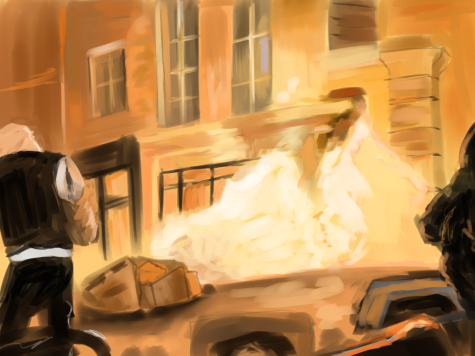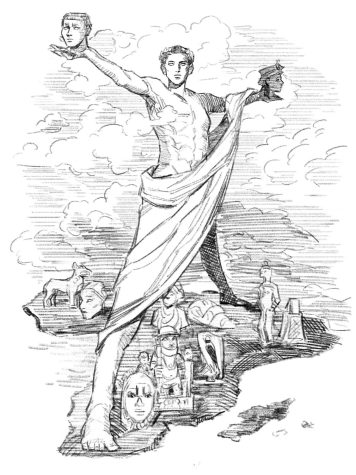An Icy Yet Heated Olympics
February 27, 2018
On Tuesday, January 2nd, 2018, North Korea officially announced its participation in the 2018 Winter Olympics in Seoul, South Korea. As North Korea’s burning nuclear missile threats increase tensions, their announced participation tames the fire just a little bit.
This will be the first Olympics in eight years in which North Korea will participate. They will be sending numerous athletes, a cheering squad, and even an art troupe. In order for North Korean participation, South Korean cabinet minister Cho Myoung-gyon met with his North Korean counterpart, Ri Son-kwon. Parts of their meeting were broadcasted to the entirety of South Korea and the capital of North Korea. During this meeting, the conversation focused on respecting each other’s teams and values as well as working together to fulfill a desired just Olympics. According to Max Sun, ‘18, “[North Korea’s participation] is an awesome political move that gives off at least an impression of peace which makes the US look comparatively bad.”
Of course, this may be a goal of North Korea, for though this situation seems jovial on the surface, underneath tensions still exist. Making this revolutionary announcement, Kim Jong-un, the infamous leader of North Korea, turned his speech into a political discussion, speaking boldly about North Korea’s nuclear missiles – his “nuclear button.” In a sense, North Korea could be using the Olympics as a way to bolster their reputation whilst threatening the U.S., making the U.S. seem weaker and less willing to encourage peace.
Even more recently, on January 29th, North Korea announced that it would be cancelling a pre-Olympic cultural event with South Korea, an event decided to promote companionship and bonding between the two Koreas. This decision reveals the unpredictability of the North Korean government, however it will not affect North Korea’s decision to send twenty-two athletes and an art troupe to the Olympics. Nonetheless, an event such as this cancellation simply causes greater friction.
South Koreans were not very welcoming of “joint-team” ideas made between their respective government. North Korea and South Korea will walk alongside one another during the Opening Ceremony and will create a joint women’s ice hockey team. South Koreans remain skeptical towards the genuinity behind the North’s actions, and continue to believe that these decisions are simply fueled for political prowess. Agreeing with these worries, Joyce An, ‘18, says “North Korea is willing to move towards reconciliation, but at the same time [their participation] arouses further suspicion about its intentions.”
Safely said, North Korea’s sudden resurfacing causes much suspicion in the global community. The Olympic Games being a ceremonious coming-together of international teams, let’s hope politics takes a backseat as communion and sport steer the way.


